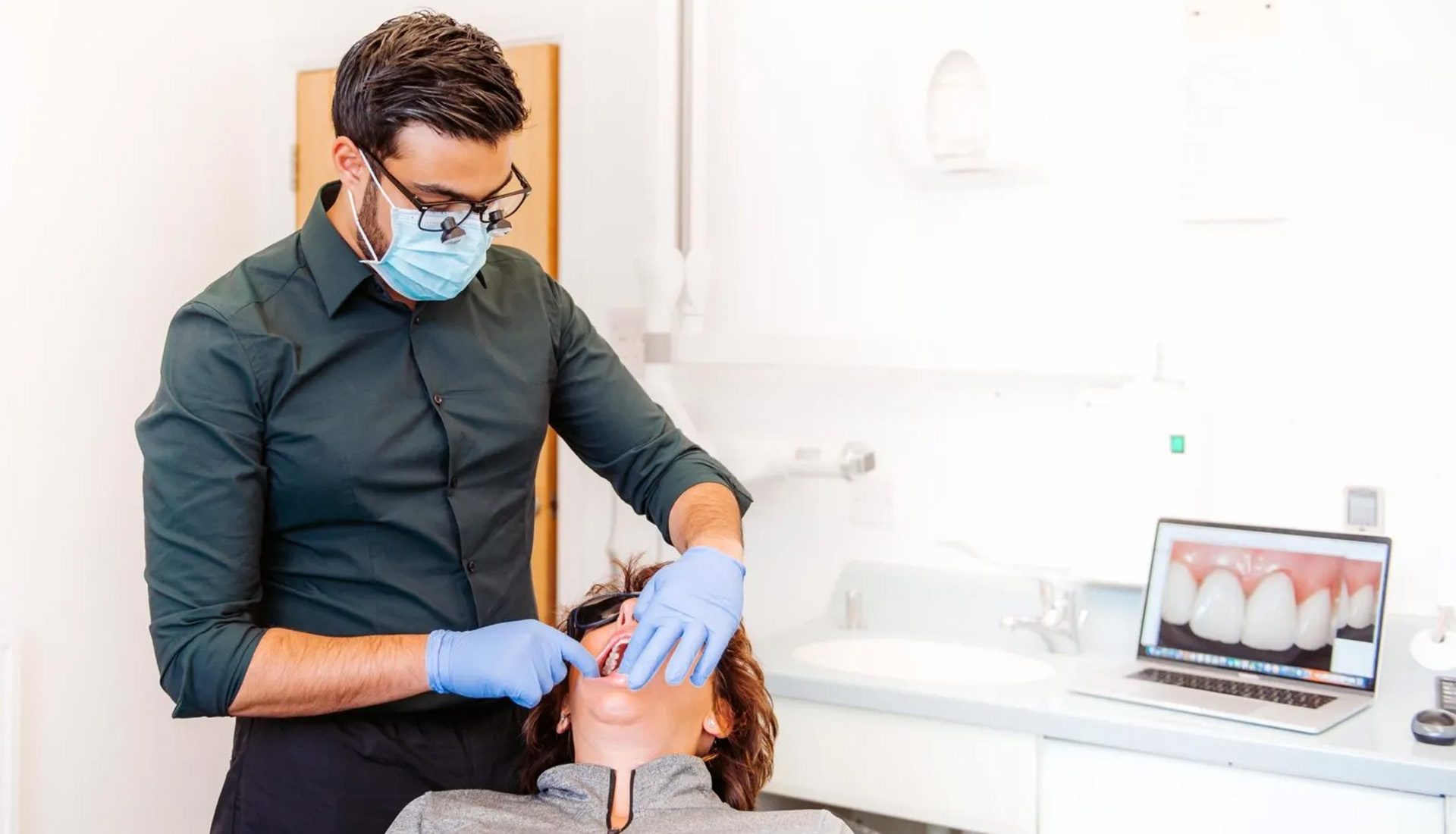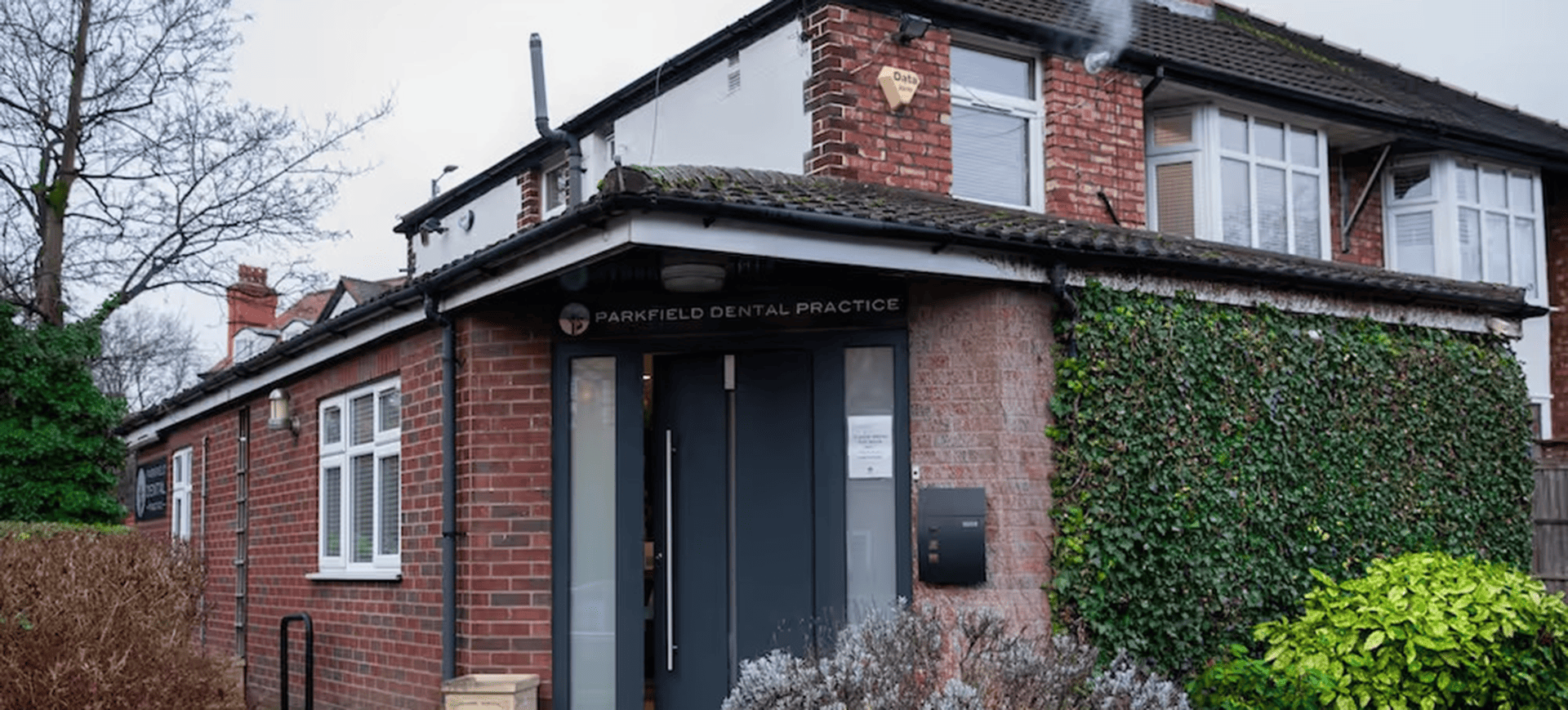
Give your gums the attention they deserve
Time: Minimum of 30 minutes per appointment; multiple follow-up appointments necessary for periodontal maintenance
Cost: Initial consultation with the dental hygienist starting from £75 * Periodontal treatments starting from £137.50
The first step is to meet with our dental hygienist (also called a ‘dental therapist’) for a complete gum health check-up. You can schedule an appointment directly with the hygienist and you do not have to meet with the dentist, if you do not wish to at that particular time.
The hygienist will carefully examine your gums and measure the depth of the tiny sulcus, or space, between your teeth and your gums. If your gums are healthy, then the hygienist will recommend routine dental cleanings and dental check-ups. If your gums show signs of disease, however, the hygienist will recommend periodontal treatment to help restore the tissues that support your teeth.
Periodontal treatment is prescribed on the basis of how severely your gums have been affected by gum disease. If you have inflammation in just one area of your mouth, then you may need some deep cleaning in just that one area. If there is widespread infection in your gums, then the hygienist may need to divide your treatment into multiple appointments to ensure your comfort. Gum treatments can be provided after the hygienist has made a proper diagnosis of your periodontal health.
The end of your periodontal treatment is only the beginning of your journey to a healthier smile. Your Parkfield Dental hygienist will give you oral hygiene advice to keep your teeth and gums clean long after your treatment has been completed. You will also be provided with a recommended periodontal maintenance schedule. Periodontal maintenance is when you visit the hygienist for a gum health check-up to monitor the progress of your healing after periodontal treatment like deep cleanings.
Gum disease is a very common condition, yet people are often unaware they have it.
Early diagnosis can make a big difference, so it’s important you recognize the signs and know what to do about them.
Spitting blood when brushing your teeth could be an early sign of gum disease.
The best ways to avoid gum disease
What are the symptoms?
If you have gum disease, your gums may bleed when you brush your teeth and you may have bad breath. This early stage of gum disease is known as gingivitis.
If gingivitis isn’t treated, a condition called periodontitis can develop. This affects more tissues that support teeth and hold them in place.
If periodontitis isn’t treated, the bone in your jaw may be damaged and small spaces can open up between the gum and teeth. Your teeth can become loose and may eventually fall out.
How can I treat gum disease?
Thankfully, the early stages of gum disease are very treatable with good oral hygiene, and can in many cases be entirely reversed. Brushing thoroughly twice a day with regular flossing – at least once a day – is the best way to prevent gum disease. Your dentist might also be able to recommend an anti-bacterial mouthwash if you’re particularly concerned.
The later stages of gum disease – periodontitis – can be harder to treat, and requires special attention. Here, the infection is deeper-rooted, and oral surgery may be required to fully remove the infection and replace damaged bone or tissue.
How can I prevent gum disease?
The best way to avoid gum disease entirely is to keep regular appointments with your dentist and hygienist. Opting for a scale and polish will help to remove any food, plaque and tartar build-up from above and below the gum line, and regular check-ups will allow your dentist to alert you to any oral health concerns you should be aware of.
You’re also at a higher risk of gum disease if you:
Smoking can also make gum disease worse. The gum`s ability to repair and defense is diminished by the content of tobacco smoke.
Your dental hygienist will clean your teeth thoroughly to remove the scale. You`ll also be shown how to remove plaque successfully yourself, cleaning all surfaces of your teeth thoroughly and effectively. This may take a number of sessions.
Firstly you should visit your dentist for a thorough check-up of your teeth and gums. Your dentist may take x-rays to assess the bone levels around the teeth. This is usually an indication of whether gum disease is present. The dentist can measure the `cuff` of gum around each tooth with a blunt probe, which measures the depths of any ‘pocketing’ around the tooth. This assessment is very important, so the correct treatment can be prescribed for you.

 Healthy, happy smiles start here.
Healthy, happy smiles start here.Fill in the form and our friendly team will be in touch with you momentarily
I had a great experience at Parkfield Dental Practice with Dr Shah. I opted for Spark teeth aligners followed by whitening and I’m very pleased with the results. The spark aligners were very clear an… Read More
These guys have completely transformed my teeth. Using Invisalign Dr Shah has left me with teeth I couldn’t be happier with. All of the staff are welcoming and friendly. I completely recommend Parkf… Read More
I have been a patient at Parkfield Dental Practice for over 15 years and could not recommend them highly enough. The whole team, from the receptionists/admin.staff to the hygienists and dentists, is p… Read More
As somebody who has a such a fear of the dentist through previous experiences, I was so pleased with my care. Mehmuna was so kind and patient with me, I felt immediately at ease and had everything exp… Read More
I had a wonderful experience at Parkfield Dental Practice. Dr Shah was incredibly attentive and careful throughout the entire procedure. Their gentle approach and positive attitude made me feel compl… Read More